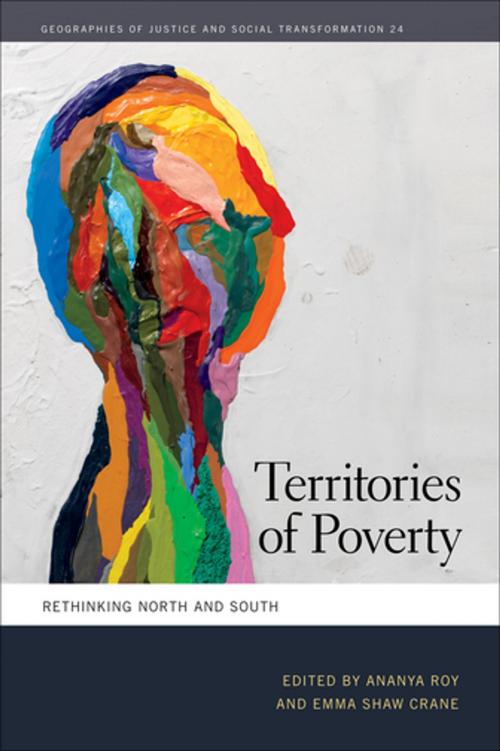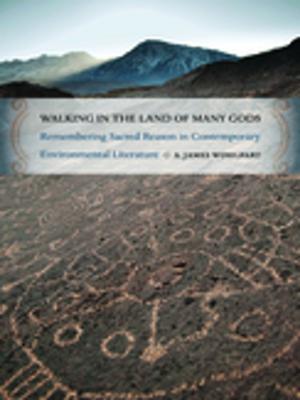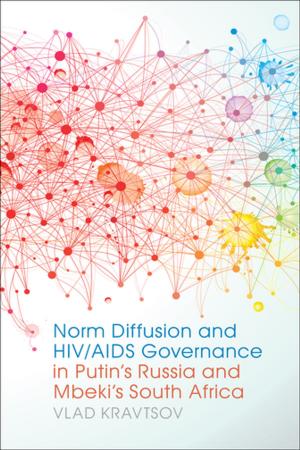Territories of Poverty
Rethinking North and South
Nonfiction, Social & Cultural Studies, Social Science, Human Geography, Political Science| Author: | Jamie Peck, Ananya Roy, Bill Maurer, Rebecca Peters, Christina Gossman, Alyosha Goldstein, Nik Theodore, Erica Kohl-Arenas, Hiba Bou Akar, Stephanie Ullrich, Luis Flores, Anh-Thi Le, Ju Hui Judy Han, Emma Shaw Crane, Vincanne Adams, Stuart Schrader, Loïc Wacquant, Teddy Cruz, Akhil Gupta, Somaya Abdelgany, Deborah Cowen, Nik Heynen, Melissa Wright, Michael Katz | ISBN: | 9780820348445 |
| Publisher: | University of Georgia Press | Publication: | November 15, 2015 |
| Imprint: | University of Georgia Press | Language: | English |
| Author: | Jamie Peck, Ananya Roy, Bill Maurer, Rebecca Peters, Christina Gossman, Alyosha Goldstein, Nik Theodore, Erica Kohl-Arenas, Hiba Bou Akar, Stephanie Ullrich, Luis Flores, Anh-Thi Le, Ju Hui Judy Han, Emma Shaw Crane, Vincanne Adams, Stuart Schrader, Loïc Wacquant, Teddy Cruz, Akhil Gupta, Somaya Abdelgany, Deborah Cowen, Nik Heynen, Melissa Wright, Michael Katz |
| ISBN: | 9780820348445 |
| Publisher: | University of Georgia Press |
| Publication: | November 15, 2015 |
| Imprint: | University of Georgia Press |
| Language: | English |
Territories of Poverty challenges the conventional North-South geographies through which poverty scholarship is organized. Staging theoretical interventions that traverse social histories of the American welfare state and critical ethnographies of international development regimes, these essays confront how poverty is constituted as a problem. In the process, the book analyzes bureaucracies of poverty, poor people’s movements, and global networks of poverty expertise, as well as more intimate modes of poverty action such as volunteerism. From post-Katrina New Orleans to Korean church missions in Africa, this book is fundamentally concerned with how poverty is territorialized.
In contrast to studies concerned with locations of poverty, Territories of Poverty engages with spatial technologies of power, be they community development and counterinsurgency during the American 1960s or the unceasing anticipation of war in Beirut. Within this territorial matrix, contributors uncover dissent, rupture, and mobilization. This book helps us understand the regulation of poverty—whether by globally circulating models of fast policy or vast webs of mobile money or philanthrocapitalist foundations—as multiple terrains of struggle for justice and social transformation.
Territories of Poverty challenges the conventional North-South geographies through which poverty scholarship is organized. Staging theoretical interventions that traverse social histories of the American welfare state and critical ethnographies of international development regimes, these essays confront how poverty is constituted as a problem. In the process, the book analyzes bureaucracies of poverty, poor people’s movements, and global networks of poverty expertise, as well as more intimate modes of poverty action such as volunteerism. From post-Katrina New Orleans to Korean church missions in Africa, this book is fundamentally concerned with how poverty is territorialized.
In contrast to studies concerned with locations of poverty, Territories of Poverty engages with spatial technologies of power, be they community development and counterinsurgency during the American 1960s or the unceasing anticipation of war in Beirut. Within this territorial matrix, contributors uncover dissent, rupture, and mobilization. This book helps us understand the regulation of poverty—whether by globally circulating models of fast policy or vast webs of mobile money or philanthrocapitalist foundations—as multiple terrains of struggle for justice and social transformation.















